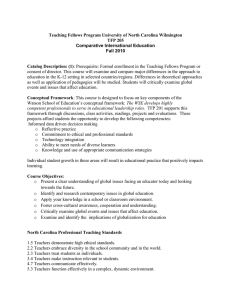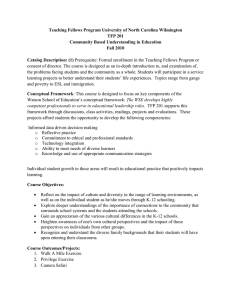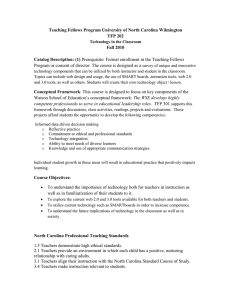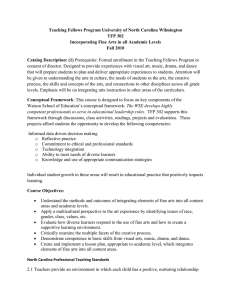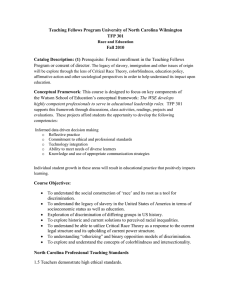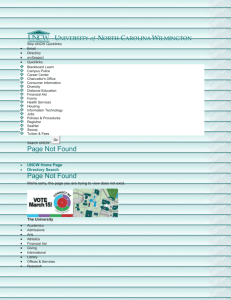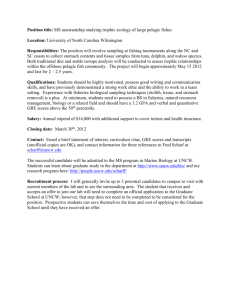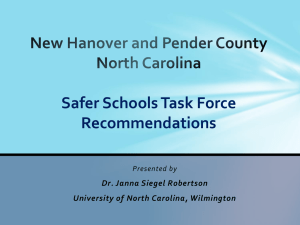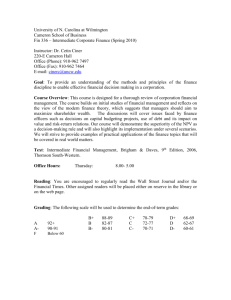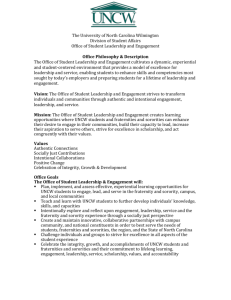TFP 203 Math and Science in the Classroom
advertisement
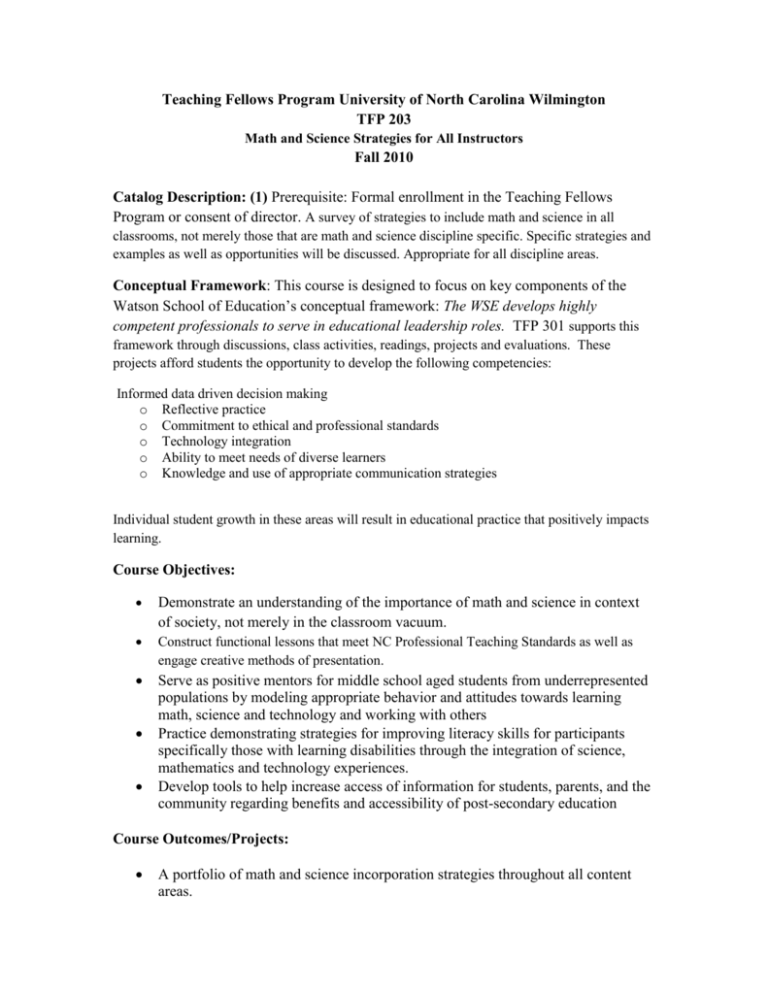
Teaching Fellows Program University of North Carolina Wilmington TFP 203 Math and Science Strategies for All Instructors Fall 2010 Catalog Description: (1) Prerequisite: Formal enrollment in the Teaching Fellows Program or consent of director. A survey of strategies to include math and science in all classrooms, not merely those that are math and science discipline specific. Specific strategies and examples as well as opportunities will be discussed. Appropriate for all discipline areas. Conceptual Framework: This course is designed to focus on key components of the Watson School of Education’s conceptual framework: The WSE develops highly competent professionals to serve in educational leadership roles. TFP 301 supports this framework through discussions, class activities, readings, projects and evaluations. These projects afford students the opportunity to develop the following competencies: Informed data driven decision making o Reflective practice o Commitment to ethical and professional standards o Technology integration o Ability to meet needs of diverse learners o Knowledge and use of appropriate communication strategies Individual student growth in these areas will result in educational practice that positively impacts learning. Course Objectives: Demonstrate an understanding of the importance of math and science in context of society, not merely in the classroom vacuum. Construct functional lessons that meet NC Professional Teaching Standards as well as engage creative methods of presentation. Serve as positive mentors for middle school aged students from underrepresented populations by modeling appropriate behavior and attitudes towards learning math, science and technology and working with others Practice demonstrating strategies for improving literacy skills for participants specifically those with learning disabilities through the integration of science, mathematics and technology experiences. Develop tools to help increase access of information for students, parents, and the community regarding benefits and accessibility of post-secondary education Course Outcomes/Projects: A portfolio of math and science incorporation strategies throughout all content areas. Development of a group mini-lesson which incorporates the principals discussed and implement it in a local school. Class Attendance Tardiness, requests to leave early, and/or absences will result in your grade being lowered a half letter grade. (ONE absence is permitted but not recommended.) None of these reasons excuse you from fulfilling all course requirements. Please make an appointment with me within the first three (3) weeks of class if you have scholarship responsibilities that require you to miss classes due to UNCW-sponsored events or performances. Grade Distribution – Grades earned are awarded using the University letter system. A 90-100 C 70-79 F 59 & Below B 80-89 D 60-69 UNCW Honor Code Statement All students enrolled at UNCW are subject to the UNCW Student Academic Honor Code (hereafter referred to as the Honor Code), which is intended to help every member of the UNCW community appreciate the high value placed on academic integrity and the means that will be employed to ensure its preservation. Students are expected to perpetuate a campus culture where each student does his or her own work while relying on appropriate resources for assistance. In such a climate students enjoy a special trust that they are members of a unique community where one’s thoughts and words are attributed correctly and with proper ownership, and where there is little need for systems to sanction those who cheat. As such, all UNCW students shall commit to the principles and spirit of the Honor Code by adhering to the following pledge: “As a student at The University of North Carolina Wilmington, I am committed to honesty and truthfulness in academic inquiry and in the pursuit of knowledge. I pledge to uphold and promote the UNCW Student Academic Honor Code.”
